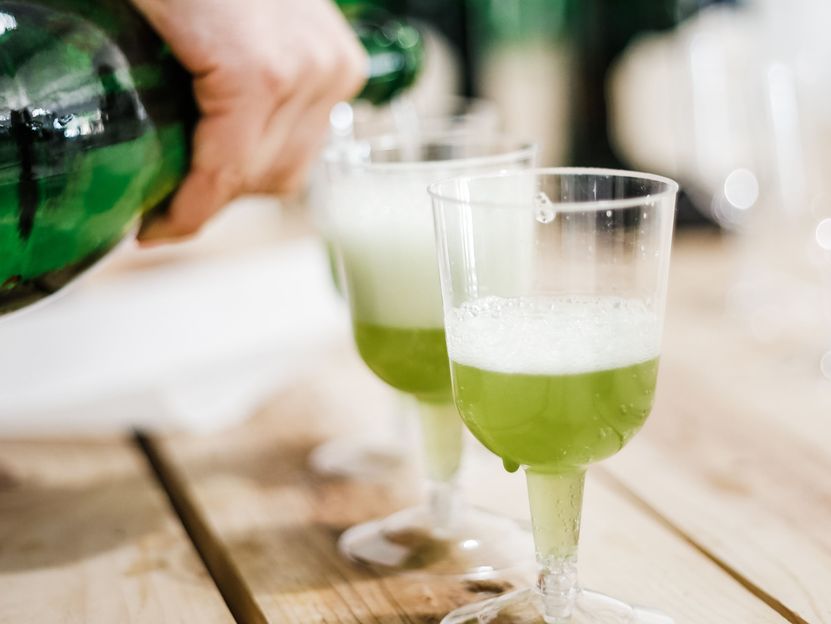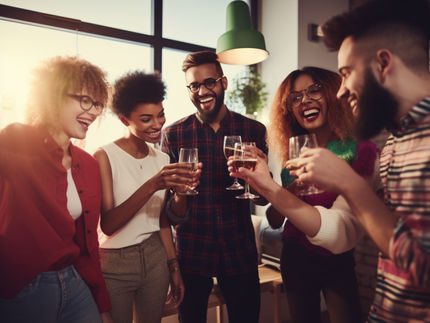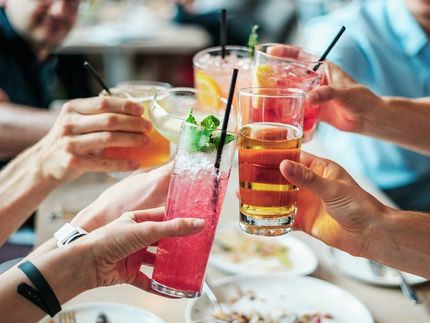Why 'Dry January' is more popular than ever
Advertisement
After the champagne stops flowing on New Years Eve, many consumers have begun the new decade with a recently-established tradition, ‘Dry January.’ Formally established by a UK-based health advocacy charity in 2013, Dry January has exploded in popularity in both the US and UK. Mintel social media analysis reveals social mentions of ‘Dry January’ increased 89% from 2018 to 2019 and 1,083% from 2015 to 2019. This year may be the largest due to the changing consumer attitudes toward alcohol and the rise of alcohol alternative drinks.

symbol image
Photo by Allie Smith on Unsplash
‘Dry January’ is just part of a larger trend
Though ‘Dry January’ comes only once per year, the trend toward sobriety is slowly becoming an all-year phenomenon. According to Mintel Market Sizes, total US per capita alcohol consumption has decreased an estimated 3% from 2015 to 2019 stemming from declining beer consumption. Beer has struggled as consumers move to other drinks they perceive as more healthful or cut back on alcohol entirely; while there has been an increase in spirit and wine consumption, consumers are simply drinking less alcohol.
A cultural shift is underway in how consumers perceive both alcohol and sobriety. The wellness movement has extended to the alcohol market with many wellness-minded consumers rethinking their relationship with alcohol in order to lead healthier lives. Moderation or complete abstention are trending in some circles and terms like “sober curious” and “mindful drinking” are entering the zeitgeist.
Conversations around mindful drinking will undoubtedly shape how consumers perceive alcohol, especially Gen Z consumers. Gen Z is already demonstrating themselves as a sober generation. According to Mintel research on white spirits, three in ten Gen Z spirit drinkers aged 22+ have taken an extended break from alcohol in the past six months. If Gen Z see their friends and online influencers abstaining or cutting back on alcohol for ‘Dry January’ it will create a sense of fear of missing out (FOMO) and motivate them to accept the challenge, perpetuating ‘Dry January’ further.
No booze, no problem
‘Dry January’ won’t be as challenging this year thanks to the dramatic growth of alcohol alternative beverages (ie, non-alcoholic beverages designed to fulfill alcoholic beverage consumption occasions). The rise of mindful drinking has coincided with the emergence of unique booze-free drinks (the growth of alcohol alternative beverages is even more pronounced in the UK).
Alternative drinks that are making a splash
TOST: a sparkling white tea, white cranberry, and ginger-based drink which can be described as a stand-in for champagne.
Kin Euphorics: non-alcoholic beverage said to produce feelings of relaxation and through its adaptogen and nootropic ingredients.
Feragia (UK): a Scottish zero-proof spirit made with 14 botanicals including seaweed, bay leaf, and chamomile. Unlike other zero-proof spirits, consumers are encouraged to drink Feragia neat/on-the-rocks.
Curious Elixirs: a brand of RTD mocktails said to help consumers destress through adaptogens.
Just because it’s ‘Dry January’ doesn’t mean consumers can’t go out for a drink; mocktails are becoming increasingly common on bar/restaurant menus. According to Mintel Menu Insights, the incidence of mocktails on restaurant menus increased 32% (Q3 2016 – Q3 2019). Those looking to extend their mindful drinking practices past January can visit any number of “sober bars” popping up around the country or join online sober social programs such as Loosid, the online dating app for the sober and sober curious.
While some may scoff at the idea of “zero-proof spirits” and non-alcoholic craft beer, recent investments demonstrate the alcohol industry is taking alcohol alternatives quite seriously. Furthermore, more than one in five Millennial spirit drinkers are interested in trying zero-proof spirits compared to less than one in ten Gen X and older consumers.
Concepts that are taking a dry run
Diageo is the majority owner of Seedlip, recognized as the first zero-proof spirit. In January 2020, Diageo made a minority investment in Ritual Zero Proof, a Chicago-based startup producing zero-proof “gin” and “whiskey.”
Heineken launched a promotional giveaway of the “Dry January Pack” – 31 cans of its non-alcoholic Heineken 0.0 beer.
Scottish craft brewery BrewDog opened its first alcohol-free bar in London earlier this month; the bar features 15 non-alcoholic beers on draft.
MillerCoors is taking a slightly different approach to ‘Dry January’ this year by suggesting consumers try a “Dry-ish January” with Miller64 (a light beer with only 64 calories and 2.8% ABV).






























































